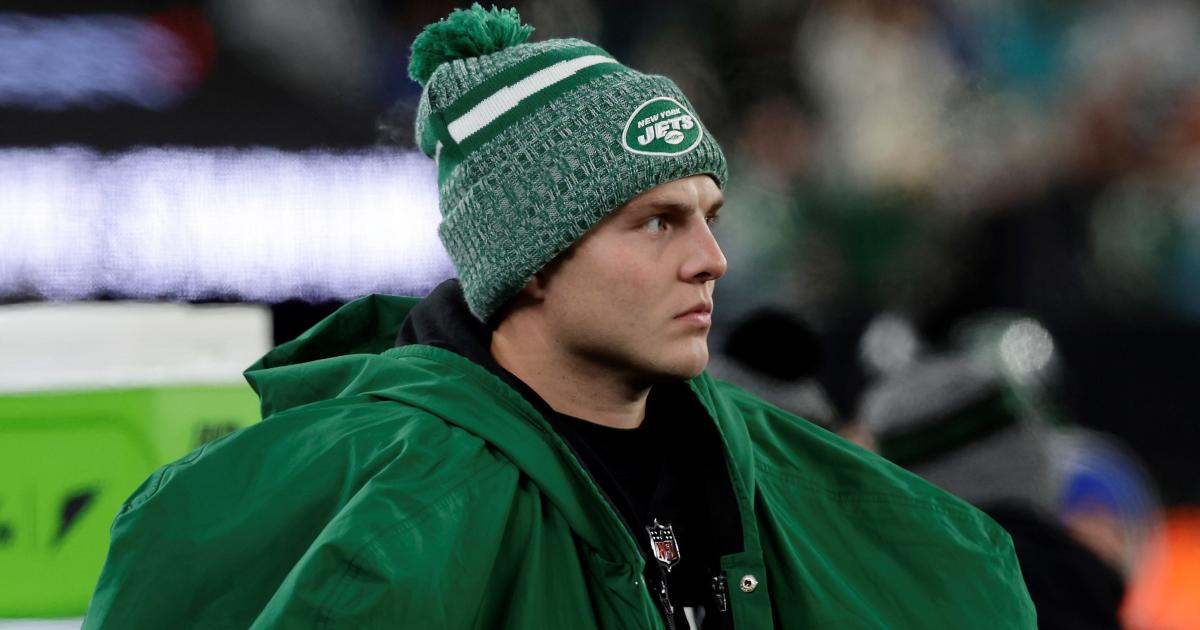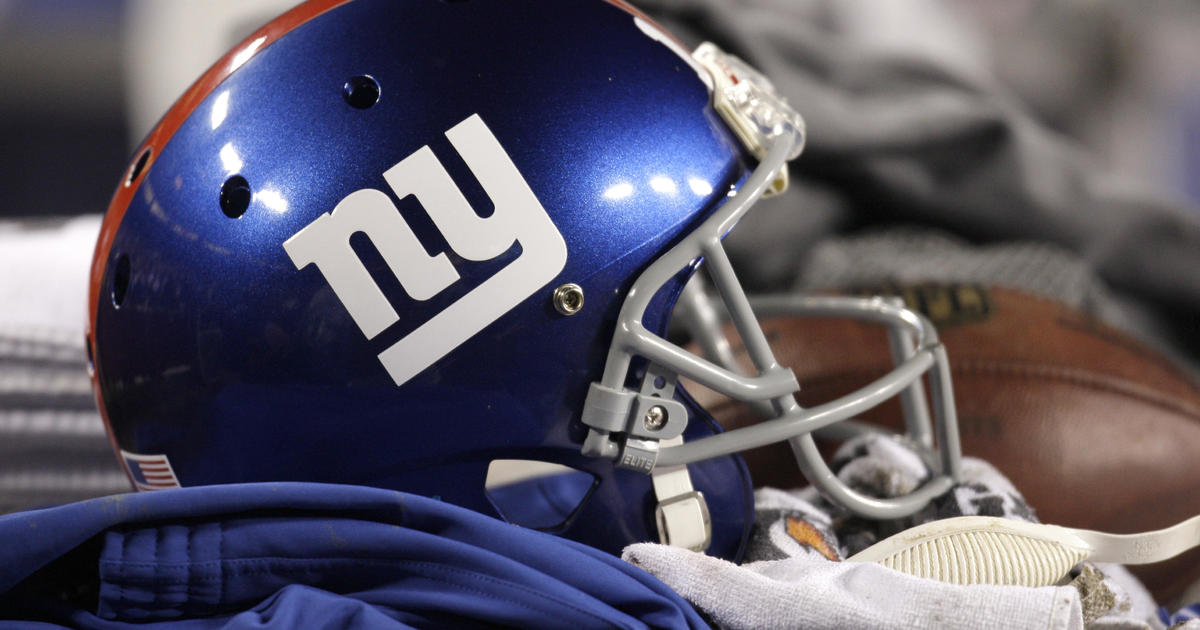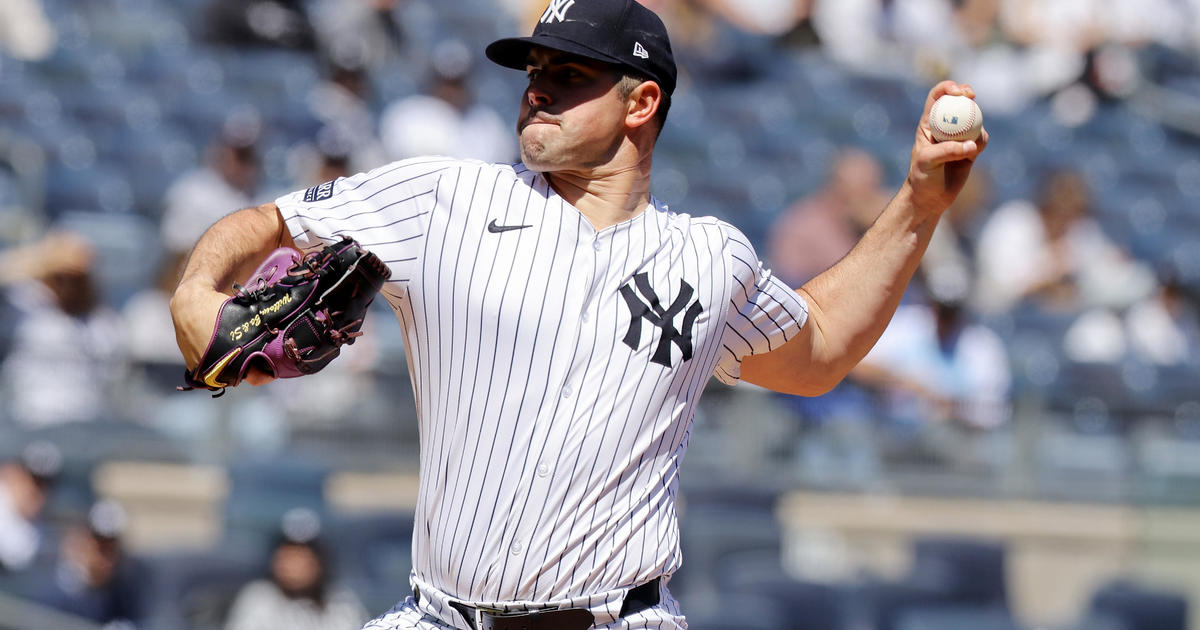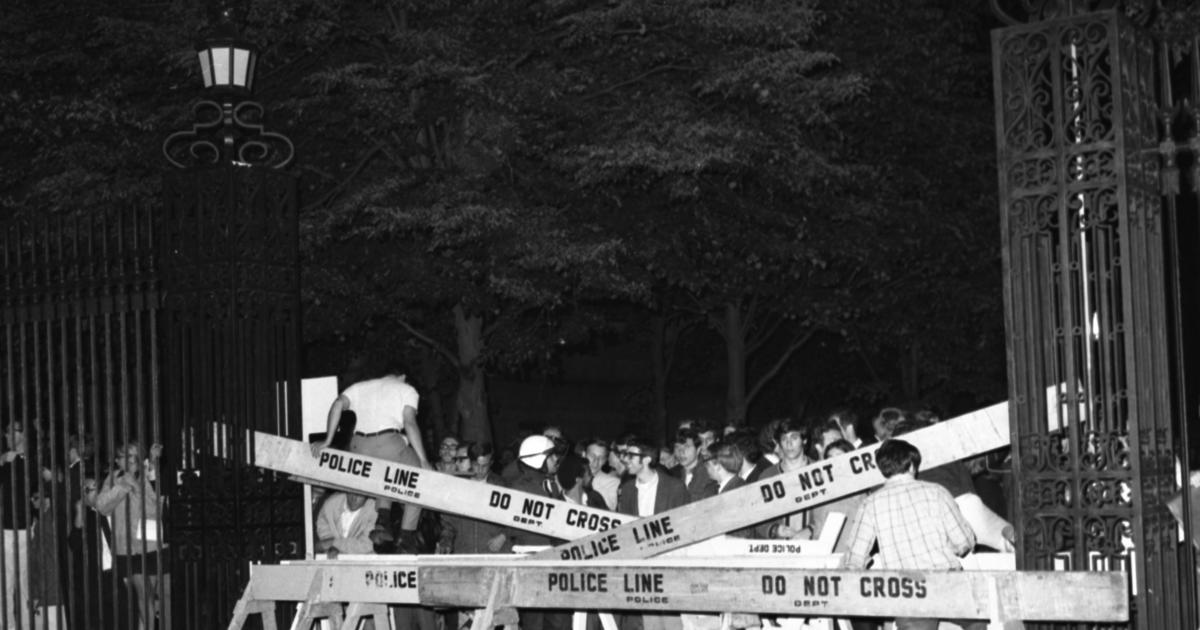Keidel: NFL's 'Culture Of Coercion' Destroying Players
By Jason Keidel
A conga line of football icons is suing the NFL for negligence, malfeasance, malpractice, and just about everything short of global warming.
The latest litigation was brought forward by a litany of luminaries, from Jim McMahon to Richard Dent to Keith Van Horne. According to the Associated Press, another 500 former players are ready to join the eight plaintiffs currently named in the lawsuit.
To cynics, there's a sense of redundancy to this, as the world seems to hop on the gravy train to the NFL's widening wallet.
But don't be shocked if the NFL is guilty.
The NFL is notoriously indifferent about its pioneers. From John Mackey to Mike Webster, the macabre montage of former football players in repose is expanding by the year. Rather than the aged elegance you see from Julius Erving, you find hulking men reduced to crumbling silhouettes, staggering their way to the golden years, forgetting how to get there or where they came from.
That's not including the morbid list of young men who committed suicide shortly after hanging up their cleats, another growing group. And the league they made a monolith doesn't particularly care. It takes an army of lawyers to get the NFL to cough up a dime for the men they honor one day a year in Canton and hurl out the limo on the way back.
We all know about the head-trauma lawsuit, which was settled for $765 million, then was bounced back to the courts because a judge said it wasn't enough. It sounds like a lot but is really tip money for the NFL, the most beloved and lucrative sport in America. Annual revenue is around $10 billion and could double in a decade.
When he was head of the NFLPA, Gene Upshaw famously (or infamously) dismissed retired players as tangential folks who no longer line his pockets, as opposed to the current players, who demanded (or purchased) his attention. Current players don't care about former players, and you won't find a suit in the sterile halls of the NFL's headquarters who will take up the cause for crippled players. Out of site and such.
We hear about players between 50 and 70 who must work part-time jobs just for the health insurance, or if they are too crippled by their NFL injuries, force their wives to work for said coverage. Just ask Joe Delamielleure, former Buffalo Bills legend who can barely make his monthly nut because of the shellacking his body took for the league he loved.
Kyle Turley was on ESPN yesterday conveying the culture of medicine in NFL locker rooms, with team doctors or trainers handing out pain pills like tic tacs. Men in lab coats wielding long needles, jamming them into the limbs of largely ignorant athletes.
We've heard the stories of a dozen, limping behemoths toiling outside a doctor's office like a bread line, starved for their Toradol shots, with no understanding of what the cumulative damage would be. All they knew was that they could finish the game, unaware of how they'd finish their lives.
"I was provided uppers, downers, painkillers, you name it while in the NFL," said former Detroit Lions and Buffalo Bills wide receiver JD Hill, according to Sports Illustrated. Hill's career spanned from 1971 until 1977. "I became addicted and turned to the streets after my career and was homeless. Never took a drug in my life and I became a junkie in the NFL."
In the same SI article, Jeremy Newberry, a Pro Bowl guard for the San Francisco 49ers from 1999 until 2008, recalled countless players lining up for anti-inflammatory shots in their buttocks before the first whistle. Newberry says that because of those drugs, he suffers from high blood pressure, renal failure, and savage headaches.
Former NFL star Marcellus Wiley told a story about getting such shots over an entire season for a pulled groin. Then, after the season, an impartial physician told him it wasn't a pulled groin but rather a torn abdominal wall, the worst such tear the specialist had ever seen. Wiley is also suffering from renal failure, in his 30s.
It's part of a larger narrative, of course. Americans, if not humans, often disregard those who can't do anything for us today.
And Americans, if not humans, make odd assumptions about the power structure, no matter the mechanism. We assume that the anointed - coaches, doctors, owners - naturally guard their patients and employees from the dark alleys of an NFL career.
We blindly trust the bosses, assuming they became bosses by dint of their decency. They aren't just shrewd businessmen and top-tier craftsmen, but they are also born with innate nobility that covers everyone they pay or treat. If that were the case, we never would have needed unions in the first place. To assume the lords of industry have the laborer in mind is to ignore the 20th Century. Didn't Donald Sterling just teach us that?
Sure, pro football is a business, and isn't blinded by the nostalgia we feel toward the heroes we cherished as children. But abusing or even ignoring your ancestors is bad business, especially for a league as tech-and-PR-savvy as the NFL.
You can dig the libertarian argument, that the aging athlete's lot in life is the tax of stardom, that they wanted to live large in their 20s without consideration to their 40s. Everyone knew what they were doing, and the meat-hook realities of brittle limbs and mangled organs came with the contract.
But that's a little myopic. While we are ultimately responsible for our lives, we enter an agreement with any employer with the implicit and legal understanding that they won't imperil us without telling us.
Wiley referred to a "Culture of Coercion" in the NFL, where everyone will do anything to get back in the game, for a few reasons. First, they know if they don't play, even if their reasons are medically valid, the team could tap another player to take your place. The idea that you can't lose your job to injury is the biggest joke of all. Wally Pips abound in all sports. Second, you languish on a trainers table while your coaches and colleagues stroll by, asking when you'll be back on the field, that you're useless on some padded slab in the locker room.
Then you have the player's lust for action and competition, and the reality that the average NFL career is less than four years. The clock is ticking on and off the gridiron. Get it now, or get it never. Such is the shrinking portal of pro sports. For every Tom Brady and Peyton Manning, some chap is literally risking life and limb just to make a few plays on special teams.
Wiley said they give you no backdrop on the long-term impact of percocet, Toradol, or any pill or powder they dispense on gameday. He wasn't whining; he was just being candid. But since they make millions to play a game we assume it's not work. Nonsense. Just watch a former football player in his 50s, with fake knees, hips, scrambled brain cells, and a lazy tongue that stumbles over every consonant. They pay a tax that doesn't appear on a W-2.
Do a few clicks on Dick Butkus, perhaps the greatest middle linebacker ever and undisputed tough guy. Butkus was mummified in bandages and used as a pin cushion by team doctors from the Chicago Bears. Barely able to walk as a rather young man, Butkus sued the Bears and won, and no one would accuse the linebacker nonpareil of being soft or self-indulgent.
Are all of these men lying? Can a man walk through the thorny portal of pro football, play with broken bones, leaking organs, and skull-stretching headaches for years then suddenly need to be on the dole when they retire?
Why do we always take the side of the gods, the billionaires, lawyers, and medics? Forget cliches about absolute power and absolute corruption. Just look at history. Our species is festooned with factual accounts of negligence, if not malice. Team doctors work for the team, not the athlete. Why trust a man just because it says MD after his name?
No doubt that men who sign up for a violent vocation shouldn't be shocked when he leaves the game with scars. But understand that the barbaric culture cuts both ways. It perpetuates the player's reputation as a superhero, but it also gives the bosses a perfect place from which to pivot in reckless directions. An extra shot here, a few pills there, and they can hide behind the badge of authority, behind the impenetrable NFL shield.
Are all eight men lying? Are the 500 in the rear ready to sign up also looking for a quick hit on the NFL teet? Or is it possible that the NFL ignored legal and medical ethics in order to win a game, get a stud on the field before he's put to pasture?
The sport's caustic acronym, "Not For Long," applies all over. To the players who used to be big, bold, and beautiful. To the fans who think they're watching clean players play a clean game. And to the doctors and owners who wink and nod their way to repair a broken athlete, thus creating a broken trust.
As a society, we always assume the latest is the greatest. We wince our way to grandpa's house for the holidays, dodge the old aunt with the moustache, and drop our pops at the house before he's seen by our friends. We want to look cool, forgetting that those old folks are the ones who made us what we are today, that they were there before our new friends, spouses, and jobs appreciated the fine work our ancestors did for us.
So it is with the NFL, which doesn't remember where it came from, and thus doesn't know where its going. It keeps forgetting its history and thus it keeps repeating it.
Twitter: @JasonKeidel
Jason writes a weekly column for CBS Local Sports. He is a native New Yorker, sans the elitist sensibilities, and believes there's a world west of the Hudson River. A Yankees devotee and Steelers groupie, he has been scouring the forest of fertile NYC sports sections since the 1970s. He has written over 500 columns for WFAN/CBS NY, and also worked as a freelance writer for Sports Illustrated and Newsday subsidiary amNew York. He made his bones as a boxing writer, occasionally covering fights in Las Vegas, Atlantic City, but mostly inside Madison Square Garden.
You May Also Be Interested In These Stories



